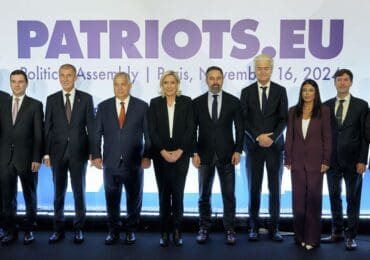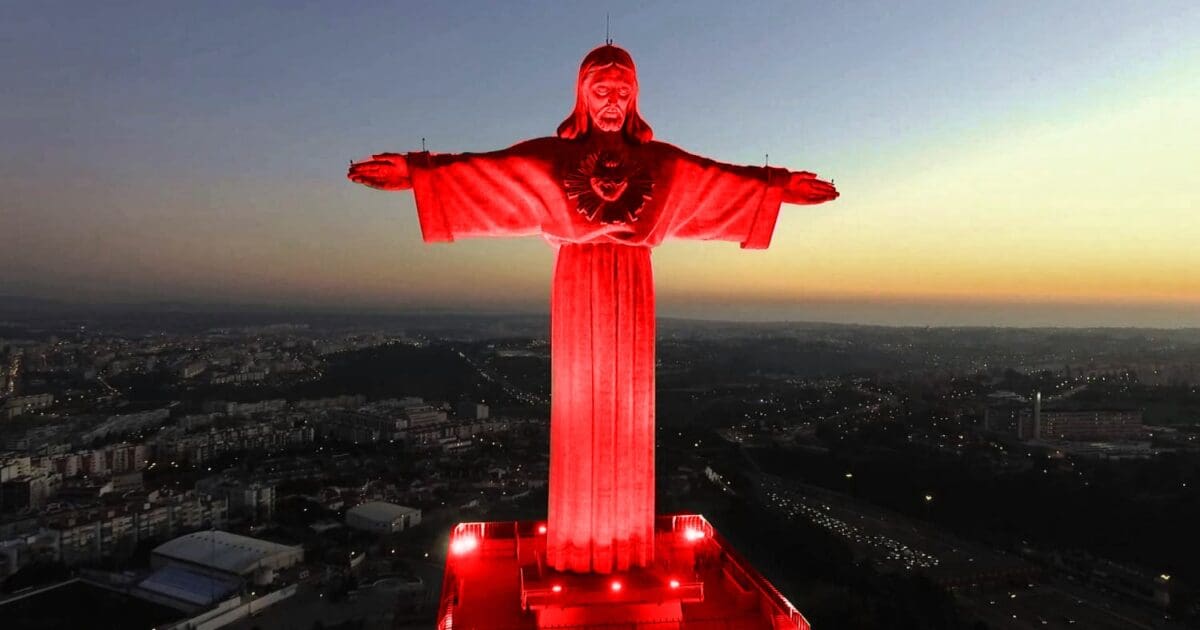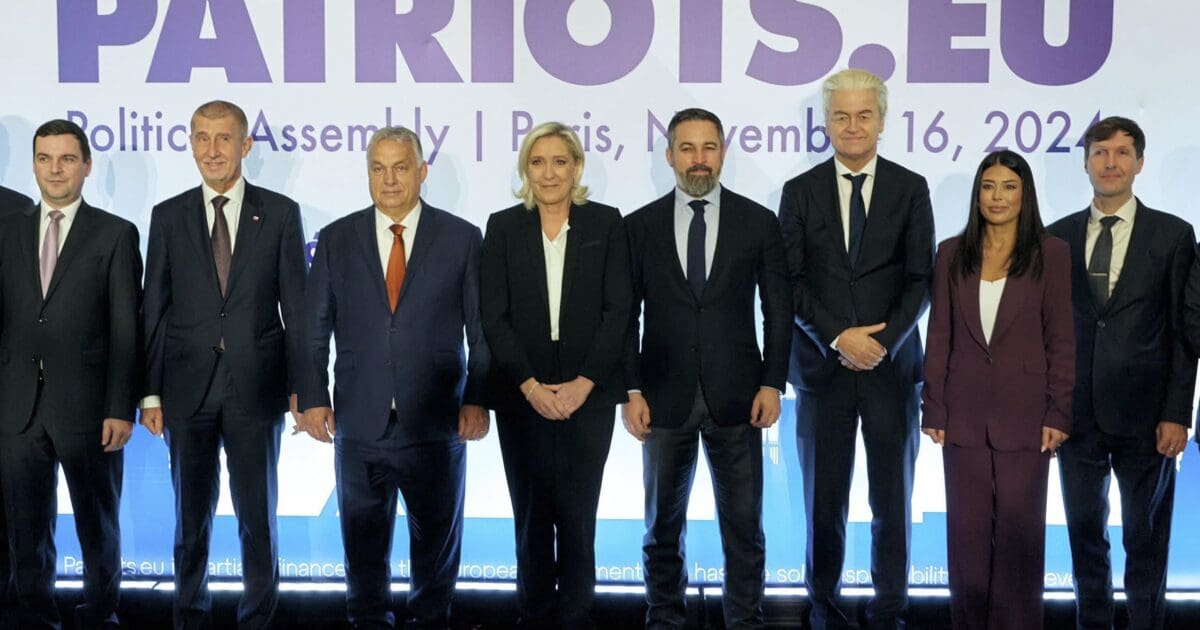In a revealing 2015 segment, journalist John Stossel explored the chilling repercussions that free speech can have when it involves criticism of Islam.
Through interviews with prominent critics like Ayaan Hirsi Ali and Bosch Fawstin, Stossel reveals the high stakes that individuals face for challenging the restrictions placed on speech of non-Muslims by Islam. The backdrop of this report is a tragic history, from the attack on the offices of Charlie Hebdo in Paris to the deaths of cartoonists who dared to depict the Prophet Muhammad.
These attacks and mass killings make it clear what Islam is prepared to do, to force Islamic values and restrictions on all people of the world, where they have the numbers to be able to enforce it.
Stossel’s report opens with a harrowing statistic—ten cartoonists have lost their lives for their art, for daring to draw Muhammad. Stossel discusses the reality that Americans generally feel at liberty to critique politicians, celebrities, and various institutions, but when it comes to Islam, many tread cautiously, fearing violent retaliation.
And in fact, freedom of speech is only for one thing. To criticize and thereby keep political and religious authority in check. Once you lose that freedom, what you can say about anything else, even women’s fashion will be dictated by those authorities. And the proof of that can be seen across the Islamic world.
Under Sharia (Islamic law), the punishment for insulting Muhammad or Allah is execution, as is the case for desecrating the Quran or committing other acts of blasphemy, or for that matter, anything that challenges the supremacy of Islam and it’s icons and authorities
This practice originates with Muhammad himself, as documented in the Hadith and by his biographers, and is further supported by references in the Quran.
Bosch Fawstin, an artist who won a “Draw Muhammad” contest in Garland, Texas—a contest that was attacked by gunmen in 2015—echoes this sentiment. He believes that free speech, even when it is offensive, is essential for a truly free society. His cartoon depicting Muhammad saying, “You can’t draw me,” represents more than defiance; it’s a statement against censorship enforced through fear. Fawstin asserts that failing to uphold this right compromises the very essence of American freedom, inching the nation closer to a climate where fear curtails individual liberties.
Stossel’s report provides further examples emphasizing the dangers of challenging Islamic doctrines. He recounts the story of Dutch filmmaker Theo van Gogh, who was murdered in broad daylight for producing a film criticizing Islam’s treatment of women.
Lars Vilks, a Danish cartoonist, was attacked during a free speech event; his work, too, was deemed blasphemous. Attendees at these events were shot, stabbed, and, in one case, hacked to death—all for exercising the right to criticize or satirize Islam. This harrowing pattern raises a question: why is Islam, among world religions, met with such violent reactions?
Rula Jebreal, a representative for the Hamas-linked Council on American-Islamic Relations (CAIR), contends that these acts of violence are committed by a small subset of extremists and do not represent the broader Muslim population. With over two billion Muslims worldwide, she argues that the majority are peaceful. However, Stossel and others are quick to point out that it is within this minority that violence is normalized as a response to Islamic blasphemy.
A classic tactic of terrorist groups is to establish a “front” political organization that claims to be peaceful while a violent group operates in the background, ready to enforce their agenda if demands aren’t met. For example, Sinn Féin functioned as the political wing of the Irish Republican Army (IRA), but it was the IRA’s use of force that empowered Sinn Féin to achieve its goals.
Similarly, groups like CAIR and other Islamic organizations can act as political fronts, while militant forces behind them use violence to influence and intimidate. This is why CAIR rarely, if ever, issues a clear condemnation of Islamic terrorists or explicitly states that those killed in acts of terrorism are not martyrs. Such silence speaks volumes, subtly endorsing the actions of extremists while publicly maintaining a façade of peaceful intent.
The argument that Islam cannot be a violent religion because “most Muslims are peaceful” misses a critical distinction between individual adherence and ideological foundation. Critics argue that the majority of Muslims may indeed choose not to enact every directive in the Quran, but this does not negate the existence of violent teachings within Islamic scripture. The Quran explicitly prescribes punishments such as the amputation of a thief’s hand (Quran 5:38). It commands Muslims to “fight those who do not believe in Allah” (Quran 9:29). The Hadith—the recorded sayings and deeds of the Prophet Muhammad—also chronicles instances where he endorsed or commanded violence against those who criticized or opposed him. These directives are not vague or subject to broad interpretation; they are clear prescriptions regarded by many within Islam as timeless instructions.
The peaceful actions of most Muslims do not inherently reflect the teachings of Islam, which exist independently of individual choice. The claim that “if the Quran taught violence, all Muslims would be violent” is a logical fallacy that ignores the reality of religious adherence. Consider this: the Quran explicitly states that a thief’s hand should be cut off, yet the majority of Muslims do not carry out this punishment. This does not change the Quran’s instruction; it only reflects individual choices to ignore or reinterpret it. Islam, as a documented ideology, does not shift based on personal interpretation—it exists with or without the individual’s practice of its more severe directives.
Furthermore, while the Quran explicitly states that a thief’s hand should be cut off, the enforcement of this punishment varies based on the level of Islamization in a given region, not individual choice. In countries like Uzbekistan, where secular law prevails, such punishments are not carried out. But in neighboring Afghanistan, where strict Sharia law is enforced, a thief’s hand may indeed be amputated, and punishments such as stoning for adultery are common. Similarly, in Indonesia, while most regions are more moderate, areas like Aceh enforce Sharia strictly. Islam, as an ideology, is not about individualism; it operates as a comprehensive system where personal choice is often overridden by regional adherence to religious law. Muslims living in areas with strict religious enforcement face severe consequences—even death—if they fail to comply with the directives of Sharia.
Critics argue that Islam, as written, demands violence against blasphemers, apostates, and unbelievers, making it distinct from other major religions. This reality, they assert, is what sets Islam apart from the Judeo-Christian traditions, where commandments against violence are foundational. David Wood, a Christian apologist, draws attention to this distinction, pointing out that while Christianity calls followers to “love thy enemy” and forgive, Islam’s scripture prescribes violence under certain conditions as a legitimate act of faith. Wood argues that this difference in foundational texts makes radicalization a unique and enduring issue within Islam, as those who adhere most strictly to these teachings—often labeled as “purists” or “extremists”—are more likely to adopt a violent, supremacist interpretation.
While Islam is not the only religion that has sparked conflicts, Stossel’s report emphasizes that the violent acts of retaliation have led to a climate of fear that disproportionately affects critics of Islam.
This climate of fear has led to widespread self-censorship among media outlets. Even after the deadly attack on Charlie Hebdo, many prominent news organizations in the West—such as NBC, CNN, and The New York Times—refused to republish the magazine’s cartoons of Muhammad. Stossel suggests that this refusal, ostensibly out of respect, is also due to fears of similar attacks. This self-imposed censorship, he argues, weakens the foundation of a free press and allows violent extremists to exert control over public discourse. Critics assert that avoiding criticism to spare feelings or “out of respect” undermines the very freedom of expression that underpins democratic societies.
Ayaan Hirsi Ali, an outspoken critic of Islam who lives under constant threat of assassination, has firsthand experience with these challenges. Born in Somalia and raised as a Muslim, Hirsi Ali fled to the Netherlands after rejecting an arranged marriage. After witnessing the celebrations following the 9/11 attacks, she committed to speaking out against radical Islam despite the consequences. Ali is on an Al-Qaeda “Wanted Dead or Alive” hit list and faces hostility not only from Islamic adherents but also from critics who label her anti-Muslim. She is clear in her critique, stating that Islam’s foundational doctrines, not her, are the cause of the world’s violent conflicts under the banner of religious faith.
Many terror-tied Islamic groups and their left-wing allies argue for the protection of Muslim communities in the West, citing Islamophobia and discrimination. However, Stossel’s report questions if this protection veers into favoritism that stifles free speech. Hirsi Ali contends that the values of the United States, including freedom of speech, are not only superior but also integral to a healthy, democratic society. Stossel’s report critiques Western complacency, arguing that an unwillingness to confront violent Islamic adherents and protect open discourse ultimately erodes democratic freedoms.
The report concludes with a sobering thought: as media organizations, institutions, and individuals increasingly choose submission over free expression, the societal implications are profound. In a world where death threats can silence voices like Molly Norris, a Seattle cartoonist who “vanished” after proposing a satirical “Draw Muhammad Day,” one might wonder if the West is surrendering its freedoms bit by bit. Stossel’s report serves as a wake-up call, challenging Americans to confront this uncomfortable truth. If violent Islamic adherents continue to wield influence through fear, they will succeed in eroding one of the nation’s most cherished principles: freedom of speech. And once that has gone, every and any other freedom and liberty will vanish as well. After all, you won’t be able to argue to keep them.
In a world that values both respect and tolerance, Stossel’s segment reminds us that protecting free speech sometimes means standing firm against intimidation. Whether America will rise to that challenge remains to be seen.














OUT WITH ALL MUSLIMSHITS FROM EU, UK & USA IMMEDIATELY!
HITLER DID A BIG MISTAKE, COLLABORATED WITH THE MUSLIMS, WHEN IN FACT, THEY SHOULD ALL HAVE BEEN SENT TO AUSCHWITZ & BERGEN-BELSEN!
MAYBE NEXT TIME SOON!
Islam huh???
How about the cost of speaking out against the democrat party in the USA?
I have not heard of anyone in the USA going to prison for years for pseaking out against Islam..
So…